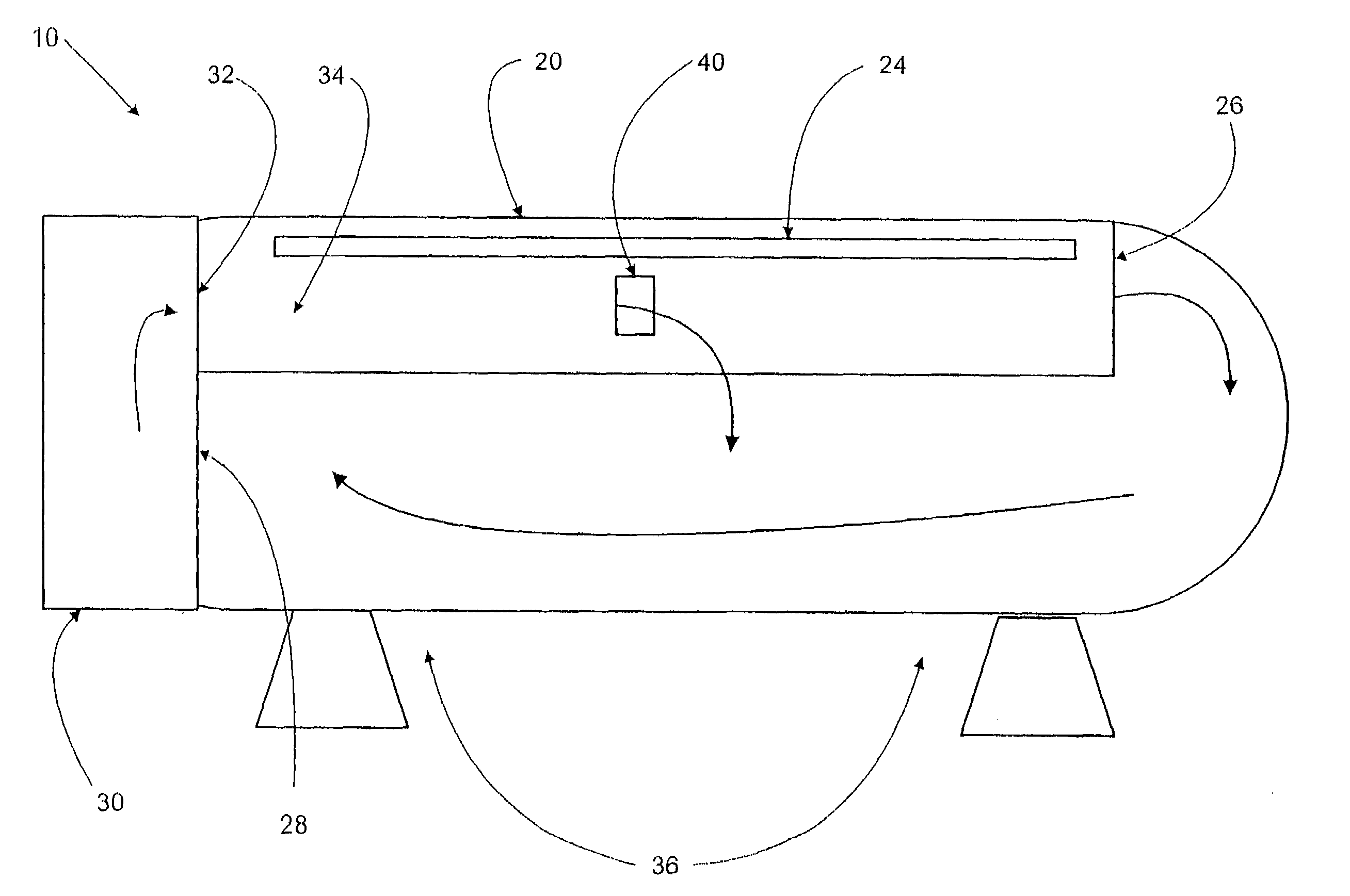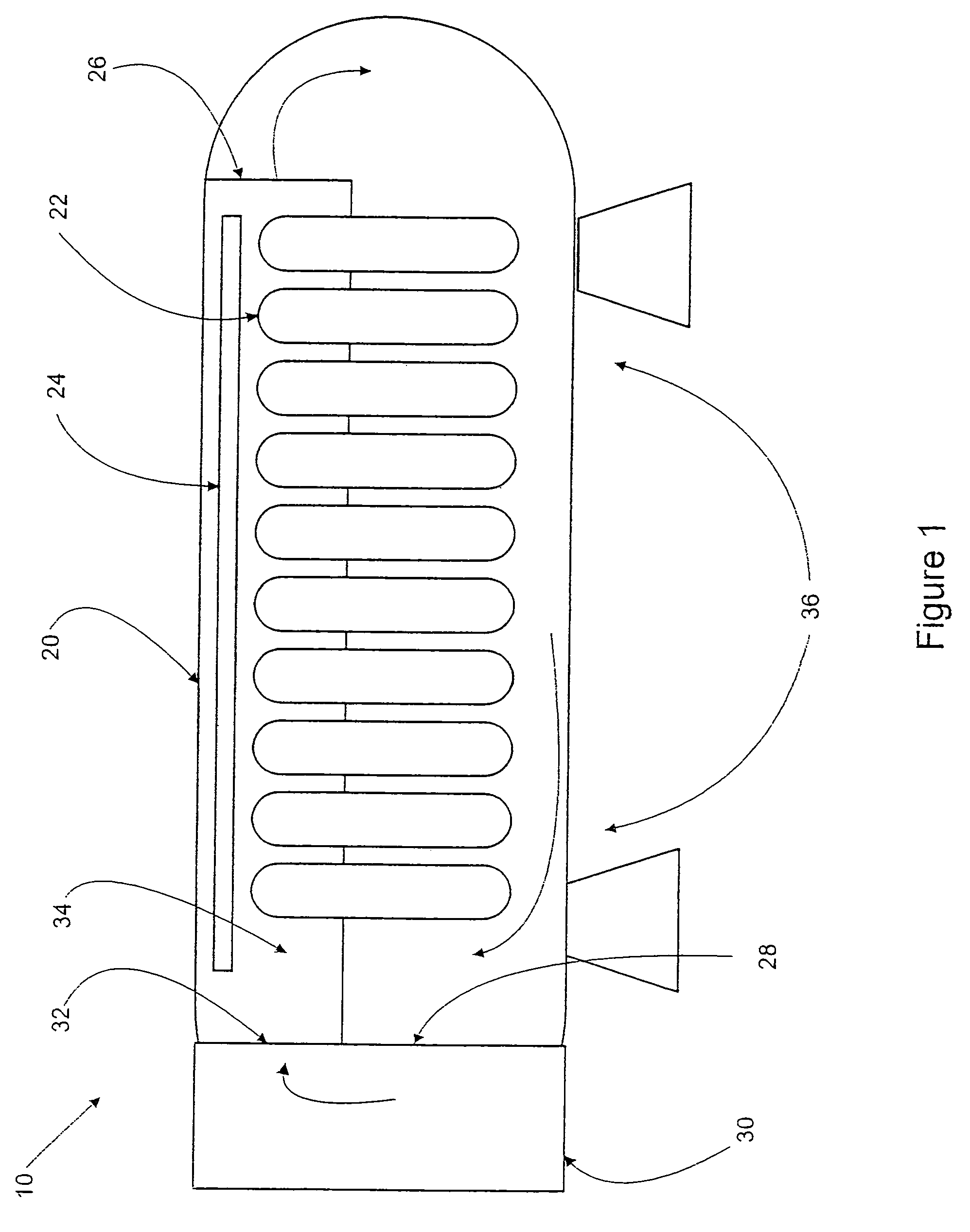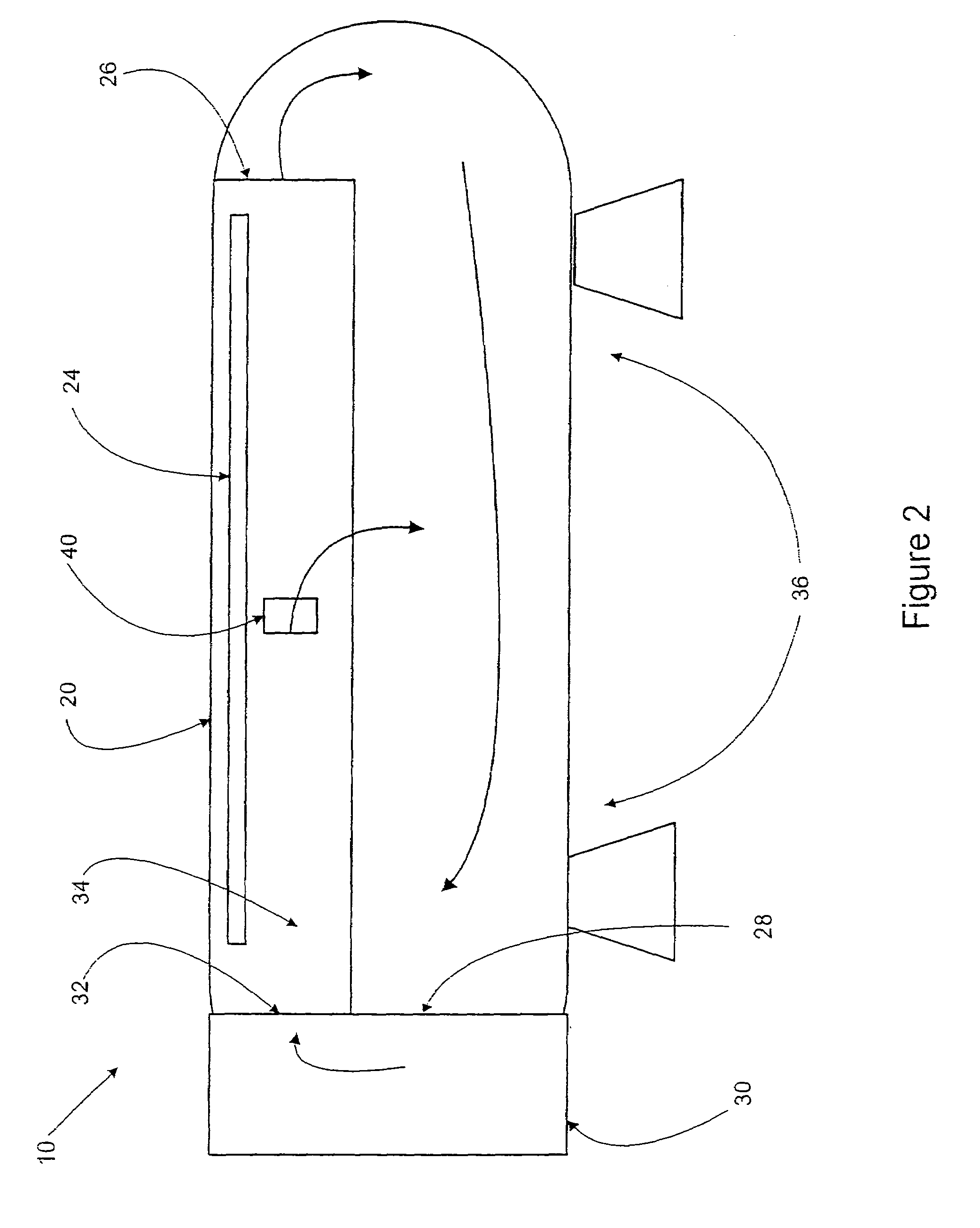Autoclave for curing retreaded tires
- Summary
- Abstract
- Description
- Claims
- Application Information
AI Technical Summary
Benefits of technology
Problems solved by technology
Method used
Image
Examples
Embodiment Construction
[0018]FIG. 1 is a simplified, schematic illustration of an autoclave 10 for curing retreaded tires currently in common use in the industry. The autoclave 10 includes an elongated chamber 20 providing a space for containing a plurality of tires 22 for a cure process. The tires 22 are suspended from a rack or frame 24 so that heated air may circulate freely about the tires. Typically the tires 22 are placed in envelopes or covers that are connected to a vacuum source (not shown) to evacuate the interior of the envelope, especially the region of the new tread and tire crown, to eliminate air at the bonding site and to generate a pressure differential between the chamber and the tread.
[0019]An autoclave of the type shown is used in the type of retread process in which a cured tread and an uncured gum rubber layer are placed on a prepared tire casing and the assembly is then heated under pressure to vulcanize the gum rubber, bonding the tread to the casing.
[0020]In the type of autoclave ...
PUM
| Property | Measurement | Unit |
|---|---|---|
| Flow rate | aaaaa | aaaaa |
Abstract
Description
Claims
Application Information
 Login to View More
Login to View More - R&D
- Intellectual Property
- Life Sciences
- Materials
- Tech Scout
- Unparalleled Data Quality
- Higher Quality Content
- 60% Fewer Hallucinations
Browse by: Latest US Patents, China's latest patents, Technical Efficacy Thesaurus, Application Domain, Technology Topic, Popular Technical Reports.
© 2025 PatSnap. All rights reserved.Legal|Privacy policy|Modern Slavery Act Transparency Statement|Sitemap|About US| Contact US: help@patsnap.com



